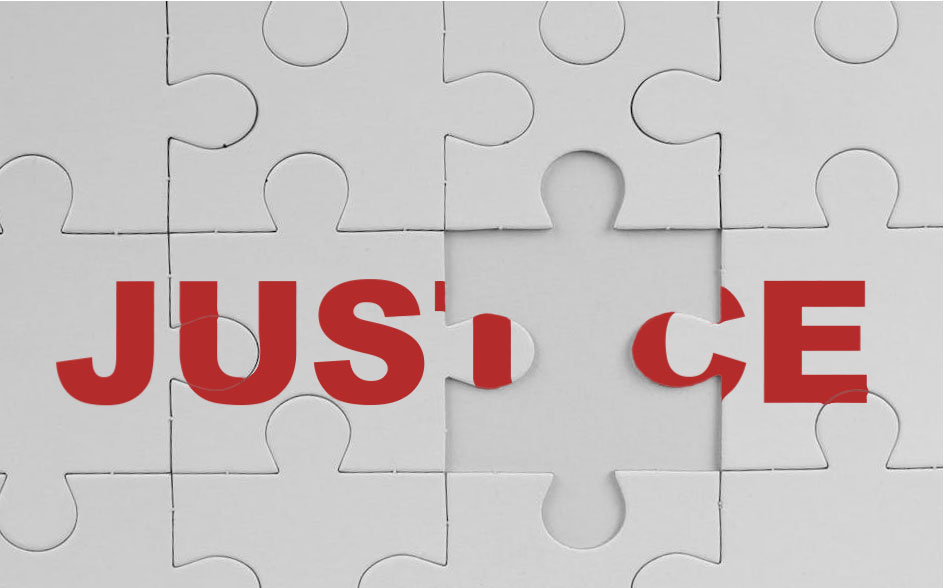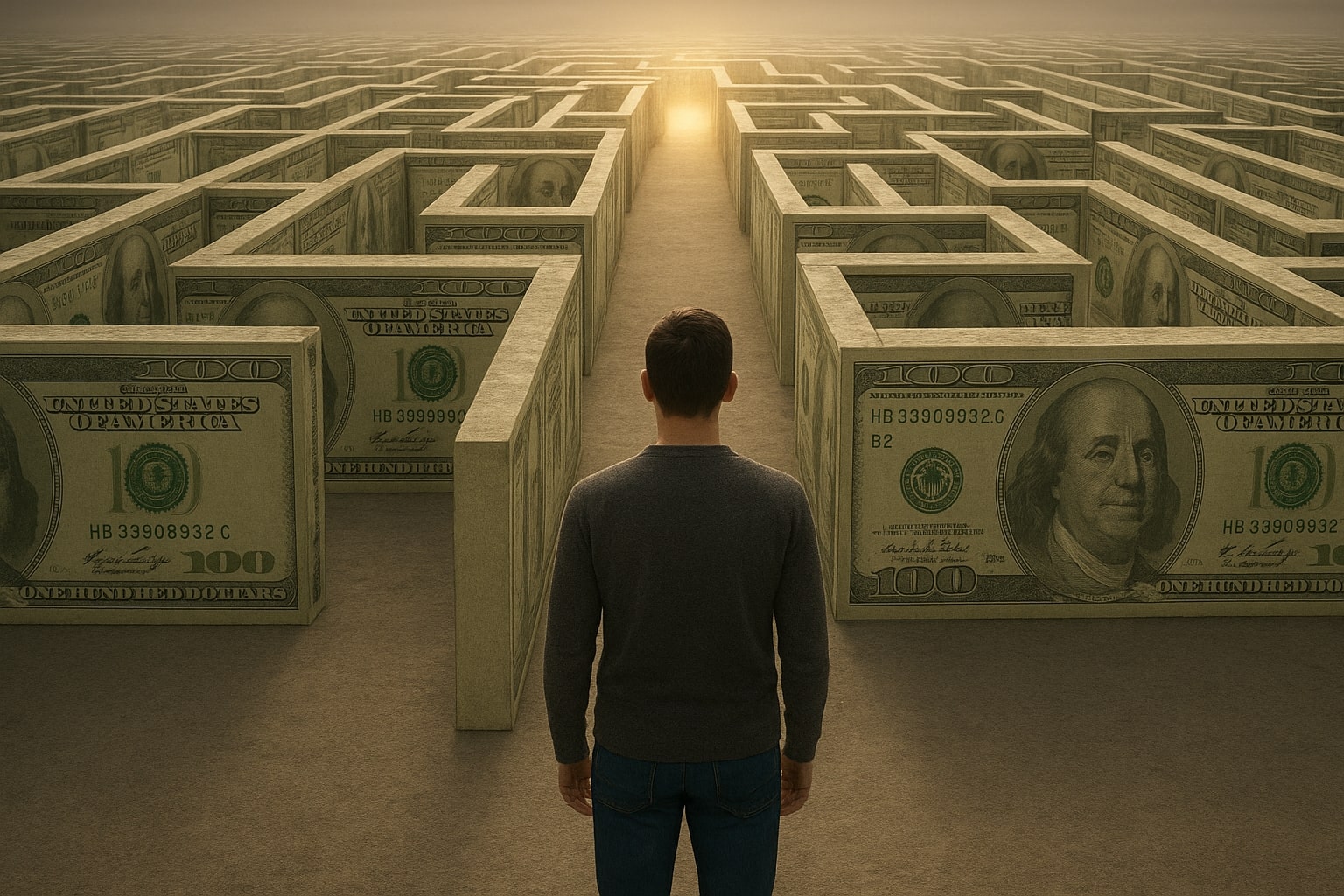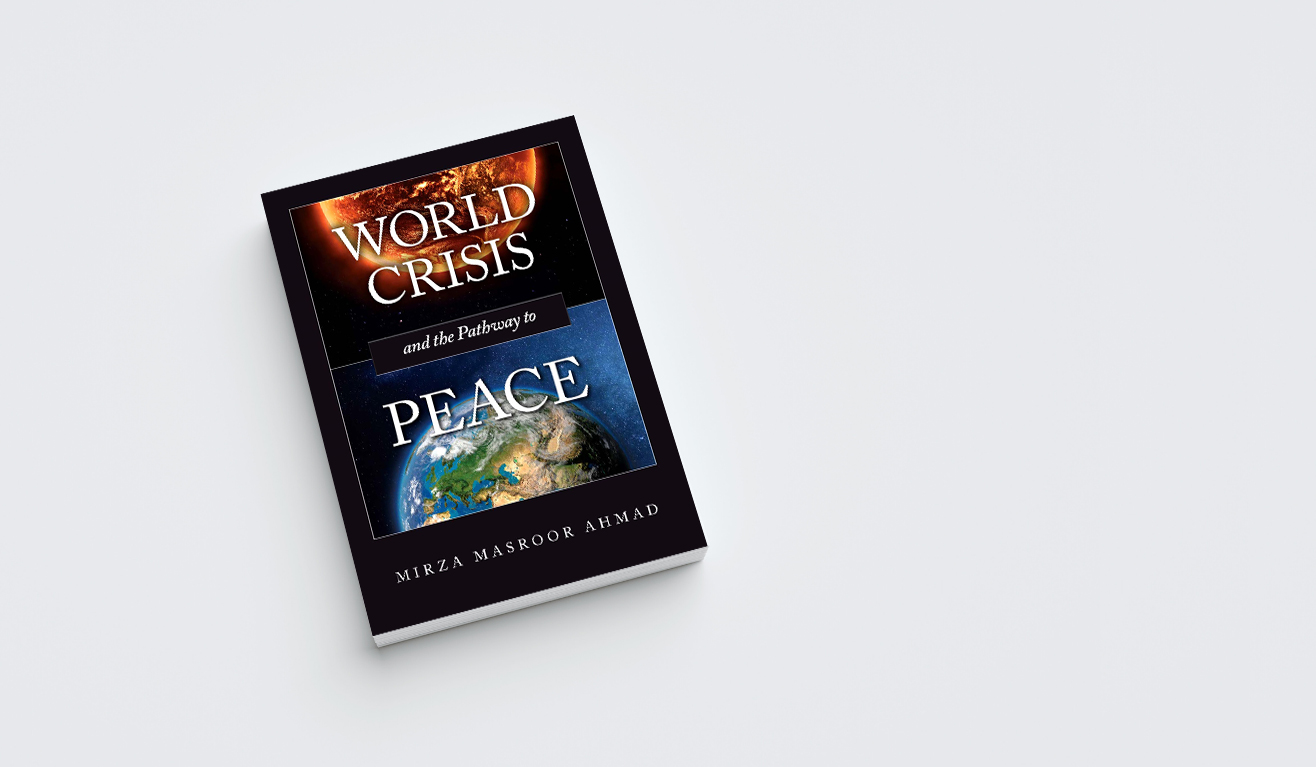MUDABBIR AHMAD TAK, SRINAGAR
Justice is a widely talked-about concept in the modern world. This might sound almost like a truism, considering that justice, as a philosophical, ethical and moral value, has been talked about, written about, and discussed since antiquity.
In contemporary times, the concept of justice pervades almost the entire field of social and political thought. This is no surprise, considering that justice forms the very foundation of our values, ethics and morals. Institutions such as the state, the polity and the judiciary all work (or ought to work) to build and preserve a just society. Justice as a conceptual framework even underlies the games we play, where rules are formulated to ensure equal opportunity to win for both sides, and the team or the player that performs better is rewarded. A society with a clear idea of justice is successful. One without this understanding is liable to implode and rot.
However, how can we define justice? And who gets to impart it? These questions have become important in the post-modern world, where traditional values are being constantly challenged and disputed.
Justice in material worldview
From a worldly perspective, justice, like any other moral value, is defined through materialistic principles, without reference to God or religion. Following a utilitarian and universal framework as outlined by philosophers such as Bentham, values, morals, traditions, and eventually laws can be understood in terms of uniformly applicable operations. This implies that man, through his inherent faculty of reasoning, can establish a universally applicable moral and ethical code that would apply the same standards for everyone, and thus benefit humanity.
However, this approach faces some major difficulties. Firstly, who gets to decide these uniformly applicable operations and frameworks? Similarly, what gives one group of people the right to frame these rules over others? These are questions that such principles fail to answer. Secondly, man is inherently subjective and cherishes his individual choices. His decisions and actions are likely to be influenced by individual perspectives, emotions, or prejudices, making a universal sense of justice almost impossible.
In order to resolve this difficulty, the contemporary ideas of justice have become more prominently associated with the theories of contractarianism[1] and agency[2]. The contractarian theory views justice as a social contract, where individuals in a society agree upon certain rules so that they can benefit from the mutual cooperation resulting from it. Similarly, the theory of agency considers justice as a prerogative of agencies such as the state or the judiciary, which represent society or individuals who delegate the decision-making power to these agencies.
Again, these theories fall short of shaping a system that may fulfil all requirements of justice. The contractarian agreement of justice has become clouded with different groups of people clamouring for so many different standards of justice to be applied to human societies, so much so that finding a solid definition of justice becomes an almost impossible task.
Likewise, the agencies, which consist of individuals, are still susceptible to subjective preferences on social or collective levels. Moreover, human knowledge, being an ever-evolving phenomenon, can at no point be considered perfect, while true values of justice can only be derived from perfect knowledge.
Justice derived from God
How does religion, and specifically Islam solve this problem? Being the Creator and Sustainer of the world, God is the ultimate objective Being who possesses no element of subjectivity. The Holy Quran highlights this point in its very first chapter, referring to God as ‘Rabbul Aalameen’[3], which means ‘the Lord of all the worlds’. Since He is the Sustainer of the whole world, and not any particular class of people, His laws are destined to be absolutely free from any bias or favouritism.
Similarly, God being Omniscient, only His laws can be grounded in absolute justice, as justice cannot emanate from imperfect knowledge. The Worldwide Head of the Ahmadiyya Muslim Community, Hazrat Mirza Masroor Ahmadaba, says:
“It is important to always remember that human knowledge and intellect is not perfect, but is in fact limited. Thus, when making decisions or forming thoughts often certain factors enter human minds, which can cloud judgement and lead to a person trying to fulfil his own rights. Ultimately, this can lead to an unjust outcome and decision being made. God’s Law, however, is perfect and so no vested interests or unfair provisions exist. This is because God only desires for the good and betterment of His Creation and therefore, His Law is based entirely on justice.”[4]
Islam thus posits that God is the fountainhead of all values, including justice. By tracing the source of justice to the Creator, Islam removes any doubts as to the authenticity and objectivity of the codes of justice.
Islamic concept of justice
In Islam, justice is defined through the ultimate objective it sets out to achieve: the moral reformation of man. The Quran says:
“And the recompense of an injury is an injury the like thereof; but whoso forgives and [his act] brings about reformation, his reward is with Allah. Surely, He loves not the wrongdoers.”[5]
This verse shows that the basic aim of punishment while dispensing justice should be the moral reformation of the wrongdoer, whether by punishing the guilty person or forgiving them. It also entails that any punishment should not be disproportionate to the act of wrongdoing. This is one of the most beautiful aspects of justice that should be applied in corrective justice practices.
On the other hand, Islam teaches that good is an overwhelmingly powerful force that can drive away evil, implying that acts of goodness should be rewarded with greater good. These two aspects well explain the Islamic concept of justice, expounding on which, one of the most foremost jurists of modern times, Sir Zafrulla Khanra, says:
“To maintain a proper standard of justice it is necessary that recompense of good should in no case be less than what a person has earned, and that, on the other hand, the penalty for a wrong should not exceed the wrong or transgression committed. A contravention of either of these principles would amount to injustice.”[6]
If justice is understood in this manner, almost all societal evils can be eliminated. This is the standard of justice that Islam considers highly virtuous, which should not be abandoned under any circumstances. The Holy Quran says:
“O ye who believe! be steadfast in the cause of Allah, bearing witness in equity; and let not a people’s enmity incite you to act otherwise than with justice. Be always just, that is nearer to righteousness. And fear Allah. Surely, Allah is aware of what you do.”[7]
The need for justice in an increasingly unjust world
The current Caliph of the Ahmadiyya Muslim Community, Hazrat Mirza Masroor Ahmadaba, has also repeatedly warned the world of the dire consequences of perpetuating unjust practices, not just at the level of global politics, but also at the individual and societal level.
Expounding upon the current predicament of the world, His Holiness directly associated the lack of justice with the disorder that the world is facing right now. He rightly pointed out that it is the disregard for justice that is inciting some nations to wage wars against others and usurp their rights. He warned that such selfish priorities would indeed take the world to ruin. His Holiness said:
“Always remember that if we seek to pursue our own interests at all costs, the rights of others will be usurped and this can only lead to conflict, wars and misery. We must all reflect and understand the precipice upon which we stand.”[8]
If only the world paid heed to these words and fulfilled justice, it could avert disaster and establish a prosperous society. Only then can we allow our future generations a chance to live peaceful lives.
Mudabbir Ahmad is a research scholar in Mass Communication and Journalism. He currently serves as the head of Majlis Khuddamul Ahmadiyya (Ahmadi Young Men’s Auxiliary) in Srinagar, Kashmir
END NOTES
[1] Contractarianism, Michael Moehler (2020), Cambridge University Press
[2] Is justice Grounded? How Expertise Shapes Conceptual Representation of Institutional Concepts, Caterina Villani et al. (2022), Psychological Research
[3] Holy Quran 1:2
[4] The Path to Peace: Just Relations Between Nations, address delivered at Capitol Hill, Washington DC, on 27 June 2012,
[5] Holy Quran 42:41
[6] The Concept of Justice in Islam, p. 1
[7] Holy Quran 5:9
[8] Global Conflicts & the Need for Justice, keynote address at the National Peace Symposium UK, 2017













2 Comments
Muzaffar Ahmad Tak · July 29, 2024 at 4:45 am
Azizam Mudabbir Ahmad has in detail explained the topic and given all relevant references from Holy Quraan and Islam, especially the words of Huzoor Anwar (aba) …..!!!
I am really proud of my son Mudabbir Ahmad
Syed Zafar Ahmad · July 30, 2024 at 5:37 am
MashaAllah! Well explained!
The important elements in present-day justice dispensation are timely action, equitable and adequate redress of injuries sustained and proportionate punishment. The Islamic system however takes into account the need for thorough understanding (knowledge) of the issues involved and to strive for the ultimate objective of reformation of the accused. Thus justice has to have a noble and positive impact not only on the parties concerned but the society as well.